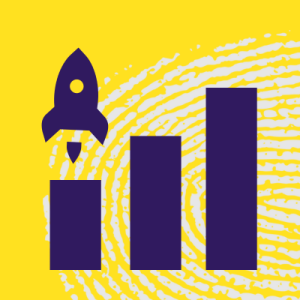Values Aren't Enough: It's Shared Beliefs That Create Cohesion
July 10, 2025
In an increasingly divided world, values matter more than ever before. They shape how we work and what is important to us.
At Diversily, we’ve defined our values, inclusion, integrity, and intrepidity. But values alone aren’t enough.
A value is a principle, but a belief is how that principle comes to life. Beliefs shape the way we think, act and interact. They define what we stand for, how we show up and how we behave.
That’s why today I wanted to go deeper, by laying out what we truly believe in at Diversily. Rather than leaving our beliefs implied, we are making them explicit.
This isn’t about judging those who think differently; it’s about clarity, alignment, and ensuring we collaborate with organisations that share our vision for a better, more inclusive world.
Unlocking collective brilliance is at the heart of what we do. The research shows that by fostering inclusive environments and diversifying participation, organisations can innovate more effectively, create better solutions and ultimately get better results. High-performing organisations operate as inclusive systems, integrating varied perspectives into a single operational rhythm, with shared goals and seamless delivery.
A strong, shared foundation is essential for successful partnerships.
Belonging matters.
That’s why we’re laying our cards on the table.
What We Believe In:
- People over profit– Yes, let’s create businesses that drive huge profits, but organisations have a responsibility to people and planet too, not profit at all costs. This may mean slowing down to consider impact, embedding ethics into decision making or doing more to avoid harm.
- Tech for good– Innovation is a wonderful thing, that should create more good than harm. Organisations should be accountable for their impact.
- Diversity of thought powers organisations – We believe that different perspectives lead to stronger decision-making, innovation, and impact.
- People’s unique experiences matter – Inclusion means valuing every individual’s lived experience and ensuring their voice is heard.
- Inclusion is for everyone– If people feel excluded from the inclusion conversation, we have not (yet) created inclusion.
- Care, kindness, humility, respect and compassion– The best leaders create cultures where everyone feels seen, valued, and can thrive. Sometimes business requires hard choices that won’t work for everyone. It’s inevitable. However you always have a choice on how you treat people along the way.
- Fairness over sameness– Fairness does not mean treating everyone the same; it means giving people what they need to overcome challenges and access opportunities. Insisting on a 9am check in every day in the office will exclude people. Only inviting feedback on the spot in a large group forum will not give everyone a chance to contribute. Beer and pizza as the only option will exclude people. People need options and support that works for them.
- The truth matters– Honesty, and integrity should underpin everything, always. The truth is more important than being right. Admitting you were wrong is a sign that you are listening, not that you are weak.
What We Don't Believe In:
- One-size-fits-all solutions– Solutions, environments and experiences that work for all must cater for diversity.
- Everyone is a fit for every company– Companies need to find their people by aligning on purpose, values and capabilities to deliver upon the mission. This means some people are not right, irrespective of other aspects of diversity. No one wants to be hired because they are a [pick your token identity]. A lack of diversity however, is usually a sign of a lack of inclusion or systemic barriers at play.
- ‘Neutrality’ on inclusion– A failure to take a stance is, in itself, a stance. Inclusion is an active practice. It requires intentionality. Thinking it will ‘just happen’ because you believe it matters is not enough.
- Change without leadership buy-in– Inclusion efforts die without budget, resources and commitment from the top. Stop trying to drive strategic change with a bunch of ‘passionate volunteers’.
- Shaming or dividing people – We reject approaches that create division by focusing on guilt or conflict. Instead, we advocate for education, empathy, understanding, growth and bringing people together.
- Ignoring unconscious bias – Unconscious bias affects everyone, and ignoring it doesn’t make it disappear.
- Reverse discrimination or quotas – The goal isn’t just diversity for representation’s sake but dismantling the systems that prevent people from standing tall. We believe in fair opportunity, giving people the support they need to thrive, breaking down systemic barriers and not in favouring one group over another based solely on their identity.
- Silencing different views – A truly inclusive environment allows for diverse viewpoints, even if those views are uncomfortable or controversial. Organisations need to get better at managing productive disagreement. This means giving staff freedom, but also clarity on the company line. Whilst creating space for people to be their authentic selves matters, so too does ensuring behaviours do not negatively impact others. This may create conflicts that need to be managed with care.
- Tokenism – Ticking boxes, performative allyship, optics without action or representation without power and influence is just window dressing.
Sharing our beliefs in this article is not just about finding the right companies to work with. Those whose beliefs align with ours. It’s also about getting you thinking about what your beliefs as an organisation might be, and how defining these might help you foster inclusion, create alignment and accelerate your mission.
Inclusion is not just a nice to have
Inclusion is a strategic lever for driving business success. However, it doesn’t just happen.
You don’t create inclusion by simply ‘raising awareness’. You have to go deeper to articulate how your values relate to inclusion, what your beliefs are and what behaviour is expected. Inclusion is about finding common ground across difference.
It’s about everyone, no matter who they are, feeling seen, valued, respected. It’s about fostering a deep sense of belonging for all. This doesn’t mean we all agree all of the time. Far from it. Productive disagreement helps businesses fly. It means that when we do disagree, we still feel we belong and we can move forward together. People are messy. The lines of acceptability are blurry. Transparency and clarity create inclusion, where people know where they stand and what is expected.
Defining clear beliefs and behaviours, acts as a magnet for the people that are right for your business. This is a far better way to attract and retain talent than the broken hiring systems in place today.
I’ve shared our beliefs at Diversily, not to convince, but to connect. My beliefs shape how I show up, who I choose to work with, and what I’m willing to challenge. It’s about whether we see the world in ways that can move us in the same direction. If they resonate, there’s a good chance we’ll do powerful work together. And if they don’t, clarity saves time, energy, and awkward conversations down the line.
Will you join me in sharing your beliefs?
It takes bravery to be clear about what you stand for. It takes empathy to see the world from different perspectives. It takes humility to know when you’ve got it wrong and correct quickly.
These are not soft skills. They are power skills that create high performance.
Work with Diversily to Unlock Collective Brilliance
We help organisations turn belonging into a performance advantage. Get in touch to build the power skills, inclusive cultures, and everyday practices that fuel innovation and deliver results.





